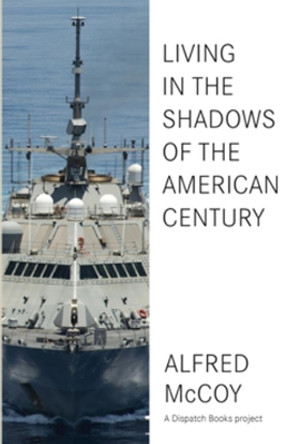Description
In 1941 the magazine publishing titan Henry R. Luce urged the nation's leaders to create an American Century. But in the post-World-War-II era proponents of the American Century faced a daunting task. Even so, Luce had articulated an animating idea that, as William O. Walker III skillfully shows in The Rise and Decline of the American Century, would guide United States foreign policy through the years of hot and cold war.
The American Century was, Walker argues, the counter-balance to defensive war during World War II and the containment of communism during the Cold War. American policymakers pursued an aggressive agenda to extend U.S. influence around the globe through control of economic markets, reliance on nation-building, and, where necessary, provision of arms to allied forces. This positive program for the expansion of American power, Walker deftly demonstrates, came in for widespread criticism by the late 1950s. A changing world, epitomized by the nonaligned movement, challenged U.S. leadership and denigrated the market democracy at the heart of the ideal of the American Century.
Walker analyzes the international crises and monetary troubles that further curtailed the reach of the American Century in the early 1960s and brought it to a halt by the end of that decade. By 1968, it seemed that all the United States had to offer to allies and non-hostile nations was convenient military might, nuclear deterrence, and the uncertainty of detente. Once the dust had fallen on Lyndon B. Johnson's presidency and Richard M. Nixon had taken office, what remained was, The Rise and Decline of the American Century shows, an adulterated, strategically-based version of Luce's American Century.
About the Author
William O. Walker III was Professor of History at the University of Toronto. He is retired and lives in Santa Fe, New Mexico. He has published extensively on U.S.-Latin American relations, and is the author of National Security and Core Values in American History.
Reviews
An impressively detailed account of U.S. foreign policy in the early postwar decades.
* Foreign Affairs *Walker's book is meticulously researched, packed with authoritative knowledge steeped in archival research and deep appreciation for how the world looks from Washington, D.C., conditioned by recent historical work providing agency to the non-West.
* The Journal of American History *In this lucid and persuasive work... [William O. Walker] provides a thought-provoking and original prism through which to view this pivotal period.
* Diplomatic History *Book Information
ISBN 9781501726132
Author William O. Walker, III
Format Hardback
Page Count 306
Imprint Cornell University Press
Publisher Cornell University Press
Weight(grams) 907g
Dimensions(mm) 229mm * 152mm * 28mm








